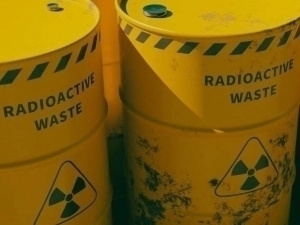Solar panels: Businessman loses meat worth 500 million sums
Review
−
04 October 2024 19056 5 minutes
Winter has not yet arrived, but preparations are already underway in Uzbekistan. Sometimes, these preparations lead to coercion and pressure. Once again, we are talking about solar panels. QALAMPIR.UZ has discussed this issue extensively, examining complaints from entrepreneurs, preparing video reports, interviewing officials, and seeking out the Business Ombudsman, who is responsible for protecting entrepreneurs' rights. What was the outcome? Entrepreneurs still cannot shake off this problem—if they don't install solar panels, their electricity gets cut off, leading to mounting losses. It's worth noting that the Ministry of Energy, Regional Power Grids, and local authorities deny enforcing such mandates. However, for the first time, the Inspectorate for Control of Electricity, Oil Products, and Gas Use, operating under the Cabinet of Ministers, acknowledged that this coercion is occurring and stated that affected entrepreneurs have the right to appeal in court.
“It’s outlined in the contract between the consumer and the supplier company. The timing of the electricity disconnection is determined within the agreement. Consumers should know their rights and, in such cases, turn to consumer protection organizations or the courts. Although government agencies claim they are ready to help, real assistance is elusive. For instance, businessman Bilal Usmanov, who produces semi-finished meat products in Namangan, had his electricity cut off yesterday. Likewise, other businesses surrounding Usmanov’s have also lost power today. On September 15, we were given a mandatory deadline until September 30 to install solar panels. By October 2, when they saw that I had not installed the solar panel, they cut off the electricity without informing anyone. My business, along with a bakery and other workshops nearby, were all disconnected. I have 6-7 tons of meat products in my facility. Given that we serve regular customers, the products need to remain frozen,” said the businessman.
Not long ago, business owners in the Tashkent region also experienced similar power cuts, with some even threatened with disconnections. Business owners argue that this behavior is unlawful, and despite explaining they have no debts, they are not listened to.
Everyone is responsible for installing solar panels, yet no one takes responsibility for assessing their feasibility or addressing the consequences.
Who can guarantee that solar panels won’t be installed haphazardly under such circumstances? Today, numerous government agencies have solar panels on their roofs, yet many remain unused.
It would be prudent to conduct proper assessments. Perhaps then, business owners, weary of winter's cold and power outages, would opt for solar panels voluntarily.
However, the Business Ombudsman is still nowhere to be found.
This behavior by officials is imposing severe costs on entrepreneurs. There’s a very real chance that these businesses, already facing frequent power cuts, could sink into bankruptcy. Dairy and meat products could spoil and become unfit for consumption, causing harm to both the business and the consumers.
“Each store holds at least 40 million sums worth of dairy and meat products. If the refrigerator stops working, the products will spoil in a day,” said a businessman operating in the Tashkent region.
Why, then, aren’t entrepreneurs voluntarily switching to green energy? Why don’t they install solar panels before being coerced? The answer lies in the cost. Today, installing solar panels is prohibitively expensive for many entrepreneurs. Furthermore, even after installation, if the panels can’t meet the full energy demand, it only adds to their problems.
The solar panels sold are often cheap, poor-quality panels from China. Additionally, what is marketed as "helium" batteries are often semi-helium, which don’t last long and fail to meet their warranty period.
Firstly, true helium batteries are expensive in China. Secondly, if high-quality helium batteries are imported, entrepreneurs find them too costly. Thirdly, most imported solar panels are monocrystalline or polycrystalline, which stop functioning as soon as clouds appear. Since electricity is most needed in the winter, what’s the use of installing solar panels that can’t produce power on cloudy days?
A businessman from Khorezm province, who installed solar panels about a year ago, has not seen significant benefits.
“You only get 20-25 kW from a 50 kW solar panel. That’s half its capacity. It’ll take at least 4-5 years to see any profit, assuming the panel’s battery doesn’t get damaged,” the businessman explained.
In fact, solar panels are the most suitable energy source for Uzbekistan’s conditions, offering many advantages. However, today the government has not communicated these benefits with precise data. For instance, starting in 2022, solar panels were installed on the roofs of all state offices and organizations across the country. Additionally, since 2019, entrepreneurs have been encouraged to install solar panels on a larger scale. However, there has been no accurate calculation or analysis published on how many solar panels have been installed to date, how much electricity they save Uzbekistan, how much money has been saved, or whether the installed solar panels are even functioning. So, who is responsible for this? We directed this question to "Ozenergoinspektsiya."
“We are not responsible for analyzing solar panels within our jurisdiction. However, our survey conducted in August revealed that a total of 71 offices had installed solar panels but were not utilizing them. We found cases of improper installation, and the relevant documents have been forwarded to law enforcement agencies,” said the deputy.




